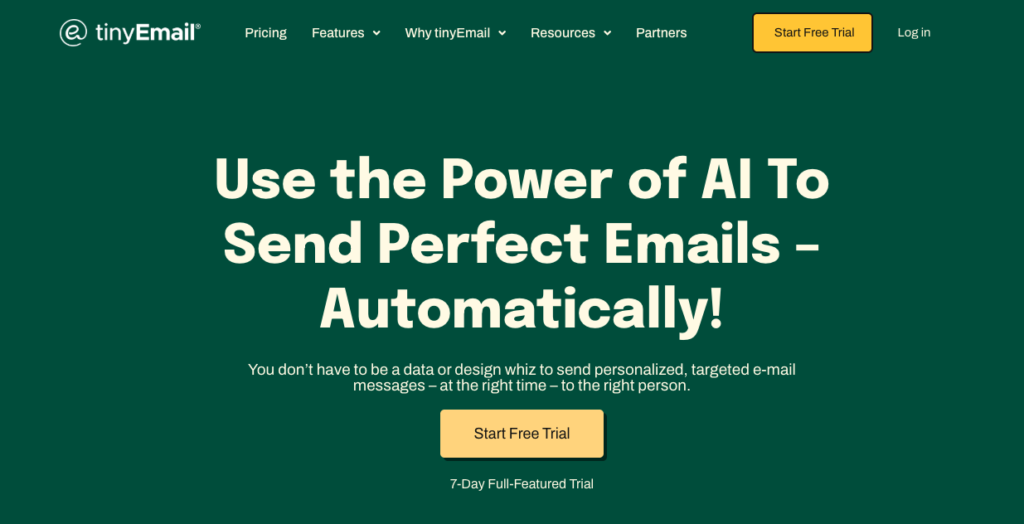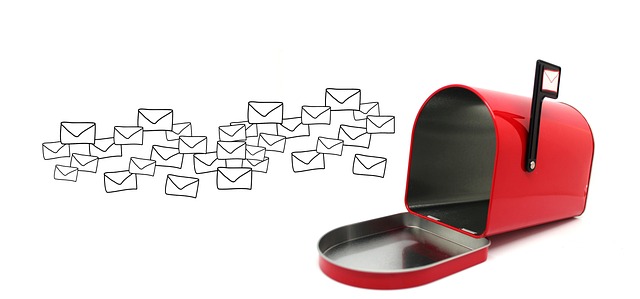- Very User Friendly
- Affordable - Great for email starters
- AI Powered Features
- Not suitable for large scale campaigns
- Basic features
Overview
TinyEmail Review: Is It Worth It? Unpacking the Pros and Cons
Email marketing can feel like a tough puzzle to solve, especially for affiliate marketers and online businesses trying to connect with their audience without spending too much. It’s challenging to find that sweet spot where cost-effective solutions meet powerful features.
I dove into this challenge, sifting through myriad options until TinyEmail caught my attention.
Here’s the solid truth: TinyEmail emerges as an affordable email provider that doesn’t cut corners on functionality. Offering to manage up to 30,000 emails each month at a fair price really sparked my interest.
This review of TinyEmail is going to give you the pros and cons from comprehensive research and hands-on testing. Prepare for an honest breakdown that might just change your approach to email marketing.
Stick around!

Key Takeaways
- TinyEmail is a budget-friendly email marketing platform ideal for small businesses, offering manageable prices and free Shopify plans.
- The platform includes user-friendly features like pre-built templates and AI-powered personalization to enhance campaigns without needing advanced technical knowledge.
- Despite its benefits, TinyEmail limits users to five tests per campaign, which might not suit those looking to deeply optimize their email strategies.
- It’s less suitable for large-scale or frequent emailing needs when compared with platforms such as ActiveCampaign and Klaviyo, which provide more advanced features and analytics.
- TinyEmail excels in affordability and ease of use but may not meet the demands of rapidly growing businesses or extensive email marketing operations due to its basic feature set.
Pros of TinyEmail
TinyEmail offers a user-friendly experience for small businesses. Its affordable pricing and pre-built email templates make it a great choice for those looking to optimize their campaigns easily.
Easy to use
TinyEmail stands out for its user-friendly design. The platform features an intuitive drag-and-drop editor that makes creating emails simple. I found the template library incredibly helpful as it offers easily customizable options.
Even beginners can navigate this tool with ease.
Affordability adds to its appeal, especially for small businesses and individual creators. A free Shopify plan also helps those just starting out in email marketing. I appreciate how TinyEmail keeps things straightforward while still delivering effective automation tools for tasks like welcome emails and cart reminders.
Affordable
TinyEmail offers an affordable solution for those sending less than 30,000 emails each month. I find it cost-effective, especially for small eCommerce stores. Their pricing plans fit well with my budget and the needs of many other individual creators.
The platform’s user-friendly interface makes it simple to navigate through various features.
I appreciate TinyEmail’s free Shopify plan, which provides great value without any upfront costs. Customizable templates also help save time when creating campaigns. This email platform streamlines marketing efforts while keeping expenses low, making it a smart choice for anyone looking for cost-effective email marketing solutions.

Pre-built email templates
TinyEmail offers a range of pre-built email templates that simplify the marketing process. I find these customizable templates especially helpful for affiliate marketers and online businesses.
Their drag-and-drop editor makes it easy to create visually appealing emails without much hassle.
This platform boasts a vast library of email campaign templates, so I can choose whatever fits my brand best. It’s cost-effective for those sending less than 30,000 emails monthly.
With such well-designed options available, TinyEmail enhances usability and makes reaching customers easier.
AI-powered personalization
Pre-built email templates make it easy to get started. I appreciate how TinyEmail enhances my campaigns with AI-powered personalization. The platform helps me create customized content for each recipient.
This feature boosts engagement and improves response rates.
TinyEmail’s automation tool sends welcome emails and cart reminders automatically. Personalizing these messages makes my marketing feel more genuine. I can tailor experiences based on customer behavior without extra effort.
These capabilities are crucial for affiliate marketers like myself who aim for effective communication without breaking the bank.

Cons of TinyEmail
3. Cons of TinyEmail: TinyEmail limits you to five tests for each campaign, which may hinder your ability to optimize effectively. It works best for small operations and might not meet the needs of larger email campaigns that require advanced features.
Some users may find it lacks essential tools compared to other platforms available in today’s market. If you want to know more about what this service offers, keep reading!
Limited to 5 tests per campaign
TinyEmail limits each campaign to just five tests. This restriction can impact my ability to fine-tune messages effectively. Testing various subject lines or content variations helps improve engagement rates.
With only five options, I feel constrained in optimizing campaigns for better performance.
For affiliate marketers and online businesses, this limitation poses challenges when trying to reach target audiences. A wider range of tests could offer deeper insights into what resonates with customers.
It feels like a missed opportunity to harness the full potential of TinyEmail’s functionality, especially since it offers other great features like automation tools and customizable templates.
Not suitable for frequent or large-scale campaigns
TinyEmail works well for sending fewer than 30,000 emails each month. For affiliate marketers and small eCommerce businesses, this cost-effective solution shines. Yet, it falls short for those wanting to run frequent or large-scale campaigns.
The platform limits you to five tests per campaign. Therefore, this restriction can hinder extensive testing or growth.
Larger email operations may find its basic features lacking compared to other platforms. These competitors offer advanced capabilities that accommodate high-volume needs better than TinyEmail does.
With this in mind, the next section will focus on the advantages of using TinyEmail for your marketing strategy.
Basic features compared to other platforms
TinyEmail offers basic features compared to other email marketing platforms. Its tools focus on simplicity. I can create campaigns easily with its intuitive drag-and-drop editor and customizable templates.
However, it lacks some advanced options that larger platforms provide, like deeper segmentation and analytics.
For businesses running frequent or large-scale campaigns, TinyEmail might fall short. Users can only conduct five tests per campaign, which limits flexibility. While the platform supports beginners well, those used to extensive features might find it a bit lacking for more complex needs in email platform evaluation.
Conclusion
I looked into TinyEmail, considering its pros and cons. I compared it with competitors like ActiveCampaign and Klaviyo. It stands out for its user-friendly design and cost-effective pricing.
The platform shines with AI tools that personalize emails well. Its limitations are clear though. It allows only five tests per campaign which might not be enough for all users. Also, it’s not the best fit for frequent or large-scale campaigns.
TinyEmail suits small eCommerce stores perfectly due to its ease of use and affordability. However, businesses planning to scale up quickly might find it limiting compared to alternatives offering more advanced features.
In making a choice, consider your business size, email volume needs, and growth plans. For small operations focused on keeping costs down while getting started with email marketing, TinyEmail offers great value.

 Start your 7 day free trial
Start your 7 day free trial

